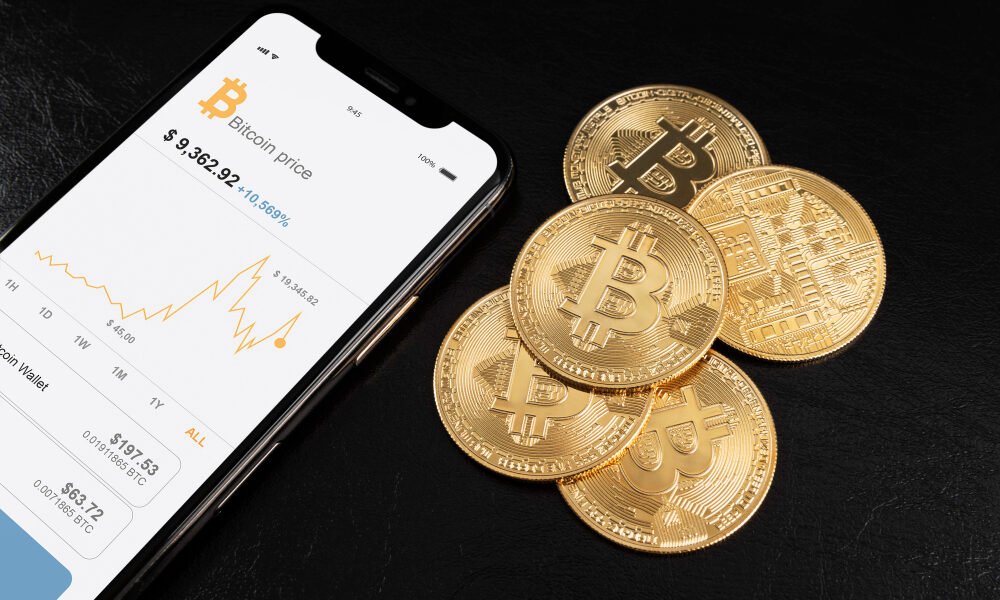In today’s digital era, where cryptocurrency plays a vital role in the financial ecosystem, ensuring the security of digital wallets has become a top priority. A cryptocurrency wallet, unlike a physical wallet, does not store currency itself. Instead, it holds the cryptographic information needed to access and manage cryptocurrency funds on the blockchain. Because these wallets function as the gateway to digital assets, their security is of paramount importance.
The growing popularity of cryptocurrencies has led to an increase in cyber threats, ranging from phishing attacks to sophisticated hacking attempts. Without proper security measures, users risk losing their funds permanently, as cryptocurrency transactions are irreversible. This article explores why wallet security is crucial, the potential threats, and the best practices to enhance security.
Understanding Cryptocurrency Wallets
Cryptocurrency wallets can be broadly classified into two main categories: hot wallets and cold wallets. Each type has distinct advantages and security considerations.
Hot Wallets (Connected to the Internet)
Hot wallets are software-based and remain connected to the internet, making them convenient for frequent transactions. However, this connectivity also makes them vulnerable to hacking.
-
Desktop Wallets – Installed on a personal computer, these wallets offer good security if the device is free from malware.
-
Mobile Wallets – Designed for smartphones, they are user-friendly and enable quick transactions. However, they are susceptible to mobile malware.
-
Web Wallets (Online Wallets) – Hosted on cloud servers, these wallets are accessible from anywhere. While convenient, they are considered the least secure, as users must rely on third-party security.
Cold Wallets (Offline Storage)
Cold wallets store cryptocurrency offline, reducing exposure to cyber threats. They are preferred for long-term storage and large holdings.
-
Hardware Wallets – Physical devices that store private keys offline. They are resistant to hacking and malware attacks.
-
Paper Wallets – A printed version of private and public keys, offering complete immunity to digital attacks. However, they are prone to physical damage or loss.
The Importance of Wallet Security
With cryptocurrencies becoming a mainstream investment, securing digital wallets is more important than ever. Here’s why:
1. Preventing Unauthorized Access
Cryptocurrency wallets hold private keys that grant access to digital funds. If these keys are compromised, hackers can gain full control over the assets. Unlike traditional banks, which can reverse fraudulent transactions, cryptocurrency transactions are final and irreversible. Implementing strong security measures can prevent unauthorized access.
2. Maintaining User Trust
The cryptocurrency industry has seen numerous high-profile security breaches. Hacks targeting exchanges and wallets have resulted in billions of dollars in losses. These incidents shake investor confidence and hinder cryptocurrency adoption. To build trust in digital assets, it is essential to implement robust wallet security.
3. Supporting the Integrity of Transactions
Secure wallets ensure that transactions occur as intended and cannot be altered or tampered with. Cybercriminals often attempt to intercept transactions or modify wallet addresses to redirect funds. Without proper security measures, even careful users can fall victim to such attacks.
Key Security Measures for Cryptocurrency Wallets
To safeguard digital assets, users must adopt comprehensive security strategies. Here are the most effective measures:
1. Encryption: Protecting Data from Unauthorized Access
Encryption encodes a wallet’s data so that only authorized users can access it. Strong encryption algorithms prevent hackers from deciphering stored information, even if they gain access to a device. Wallet providers use encryption to protect private keys, and users should ensure that encryption settings are enabled.
2. Multi-Factor Authentication (MFA): Adding Extra Layers of Security
MFA enhances security by requiring more than just a password for authentication. It may involve:
-
Something the user knows (a password or PIN)
-
Something the user has (a hardware token or authentication app)
-
Something the user is (biometric authentication such as fingerprints or facial recognition)
Enabling MFA makes it significantly harder for hackers to gain access to a wallet, even if they obtain login credentials.
3. Regular Software Updates: Fixing Vulnerabilities
Developers frequently update wallet software to patch security vulnerabilities. Users should always install the latest updates to ensure they are protected against newly discovered threats. Delaying updates can leave wallets exposed to exploits and malware attacks.
4. Cold Storage: Keeping Funds Offline for Maximum Security
For large cryptocurrency holdings, cold storage solutions such as hardware wallets or paper wallets provide the highest level of security. Because they are not connected to the internet, they are immune to online hacking attempts. This makes them ideal for long-term storage.
5. Using Trusted Wallet Providers: Ensuring Reliability
Choosing a reputable wallet provider is crucial for security. Reliable providers employ advanced security measures, undergo regular audits, and have a proven track record. Users should avoid obscure or unverified wallets, as these may contain hidden vulnerabilities or be outright scams.
6. Secure Backup Practices: Preventing Loss of Access
Losing access to a wallet due to forgotten credentials or device failure can be catastrophic. Users should create secure backups of their wallet’s private keys or seed phrases and store them in a safe place. Best practices include:
-
Writing down the seed phrase on paper and storing it in a secure location
-
Using encrypted external storage for digital backups
-
Avoiding cloud storage for sensitive wallet information
7. Be Wary of Phishing Scams: Avoiding Social Engineering Attacks
Phishing scams trick users into revealing their private keys or login credentials. Attackers often send fake emails or create counterfeit websites that look identical to legitimate wallet providers. To prevent falling victim:
-
Always verify URLs before entering login credentials
-
Avoid clicking on suspicious links in emails or messages
-
Enable anti-phishing protections provided by reputable exchanges and wallets
8. Monitor Wallet Activity: Detecting Suspicious Behavior
Regularly reviewing wallet activity can help detect unauthorized transactions early. Many wallets offer real-time notifications for transactions, allowing users to act quickly in case of suspicious activity. Using blockchain explorers to track transactions can also provide additional oversight.
Future Trends in Wallet Security
As cyber threats evolve, cryptocurrency security must keep pace. Emerging trends in wallet security include:
-
Biometric Security – Wallets are increasingly integrating fingerprint and facial recognition to enhance security.
-
Decentralized Identity Solutions – Blockchain-based identity verification can reduce reliance on traditional authentication methods.
-
AI-Powered Threat Detection – Artificial intelligence is being used to detect anomalies in wallet behavior and predict potential security breaches.
-
Quantum-Resistant Encryption – With the advent of quantum computing, stronger encryption methods are being developed to ensure future security.
Conclusion
The security of cryptocurrency wallets is not just an added feature—it is a necessity. In the decentralized world of digital assets, users bear the responsibility for safeguarding their funds. By understanding the types of wallets available and implementing rigorous security measures, users can protect themselves from the ever-evolving landscape of cyber threats.
From encryption and MFA to cold storage and phishing awareness, taking a proactive approach to wallet security can prevent devastating losses. As the digital landscape continues to evolve, so will the sophistication of security measures, ensuring that cryptocurrency remains a safe and viable financial option.
By staying informed and vigilant, cryptocurrency users can enjoy the benefits of digital currencies without compromising security.






